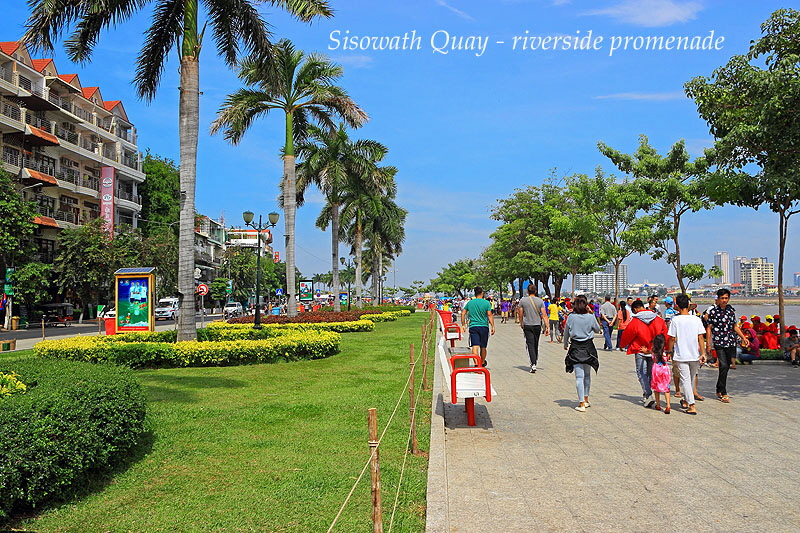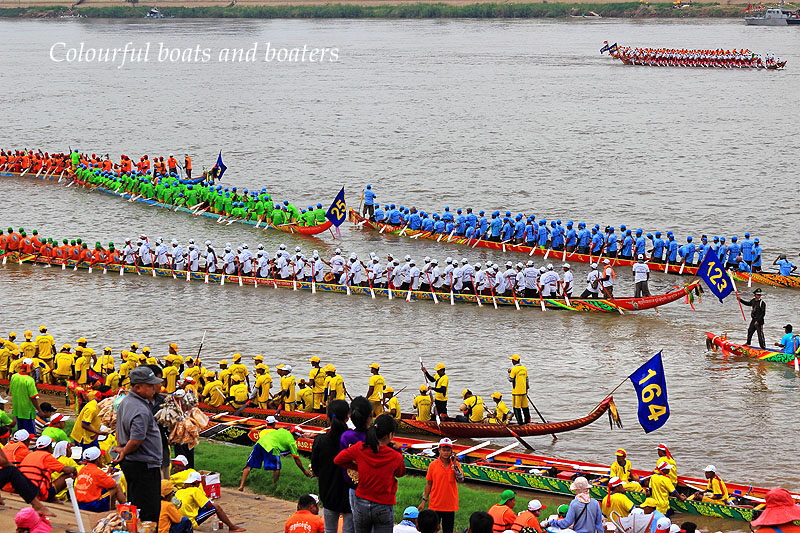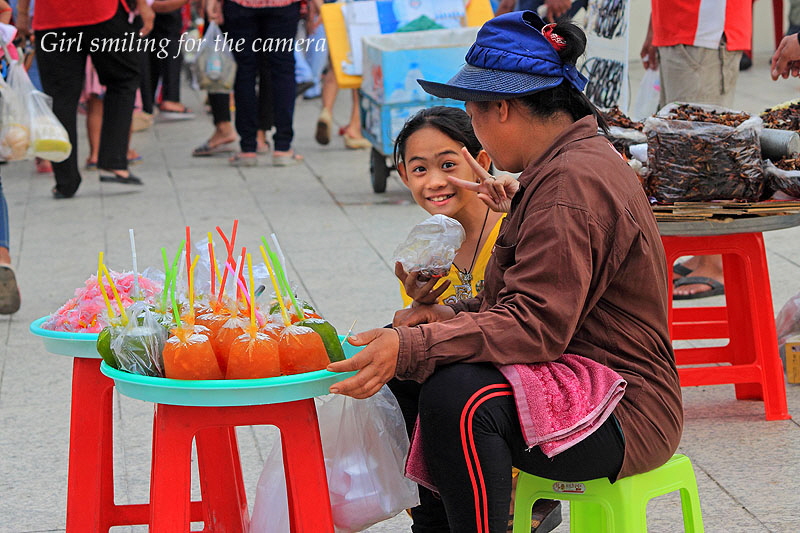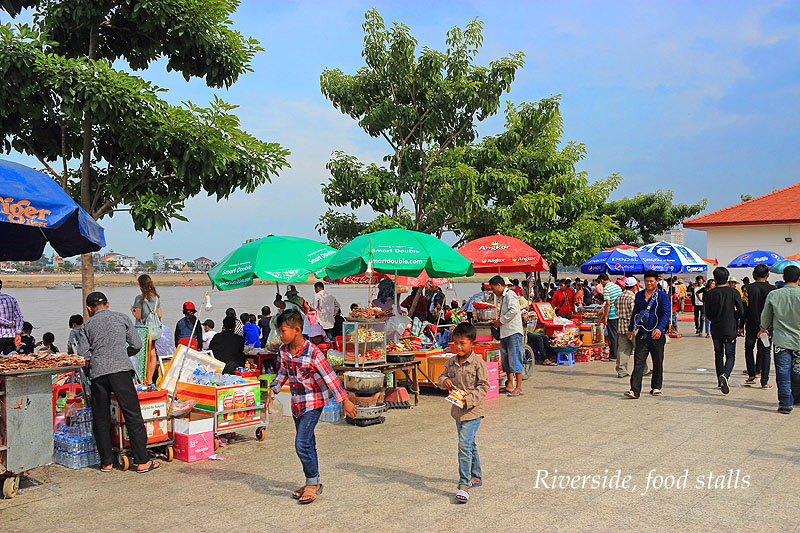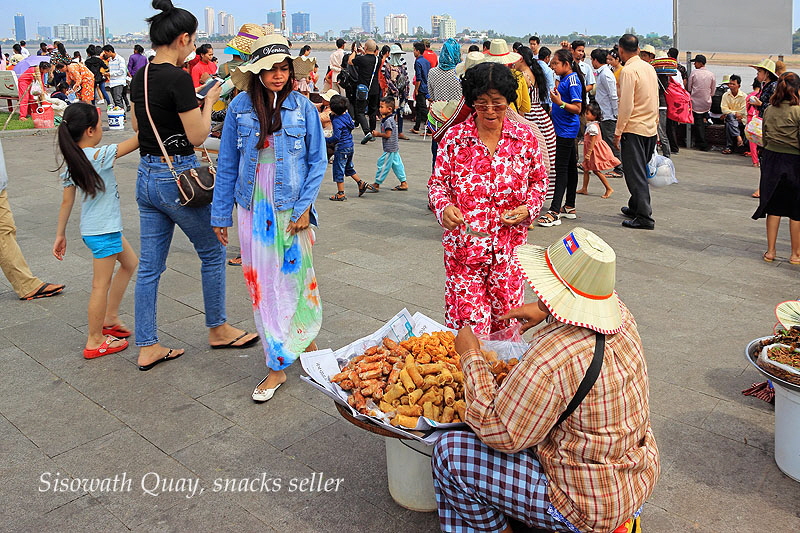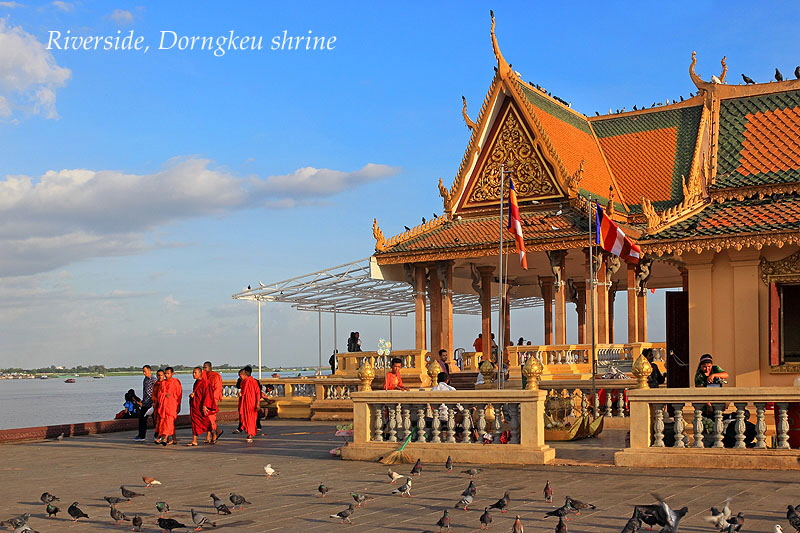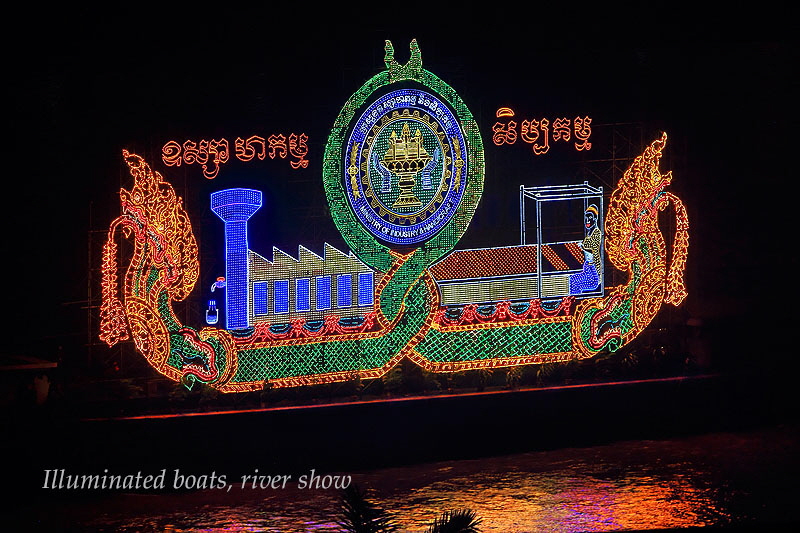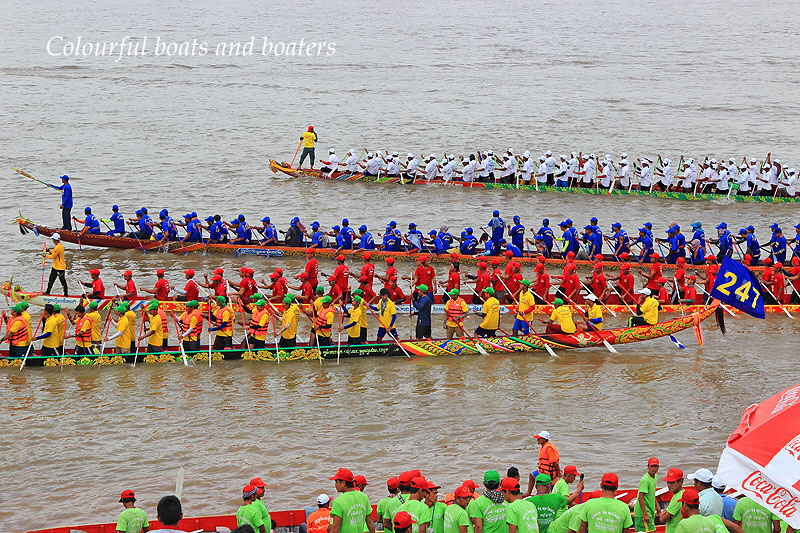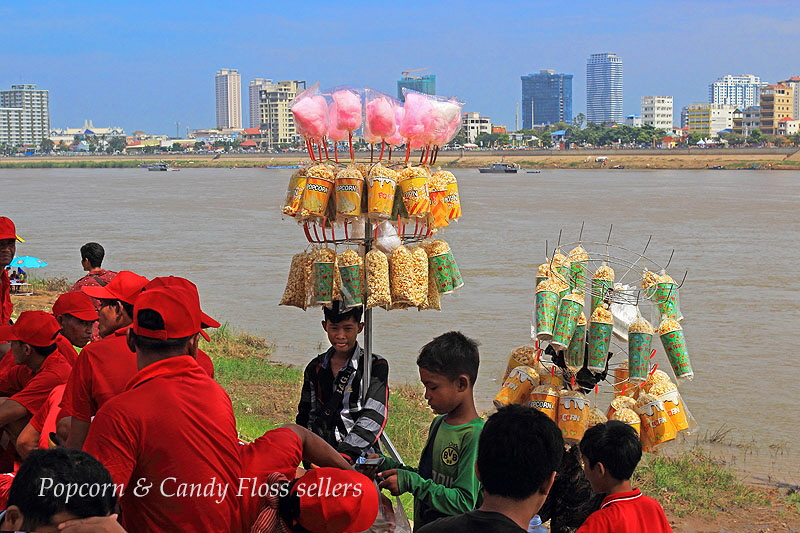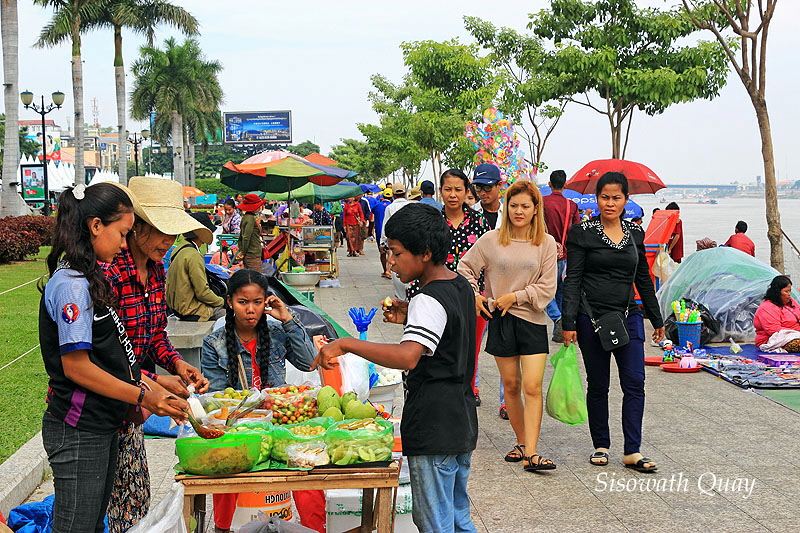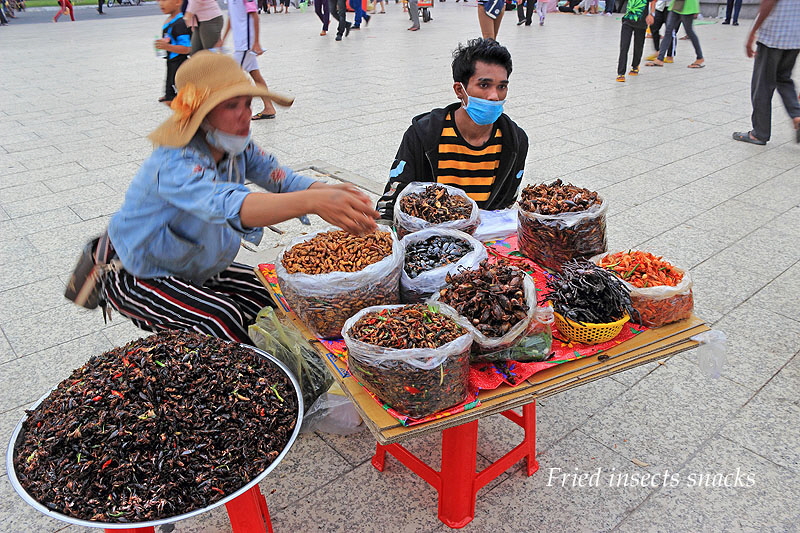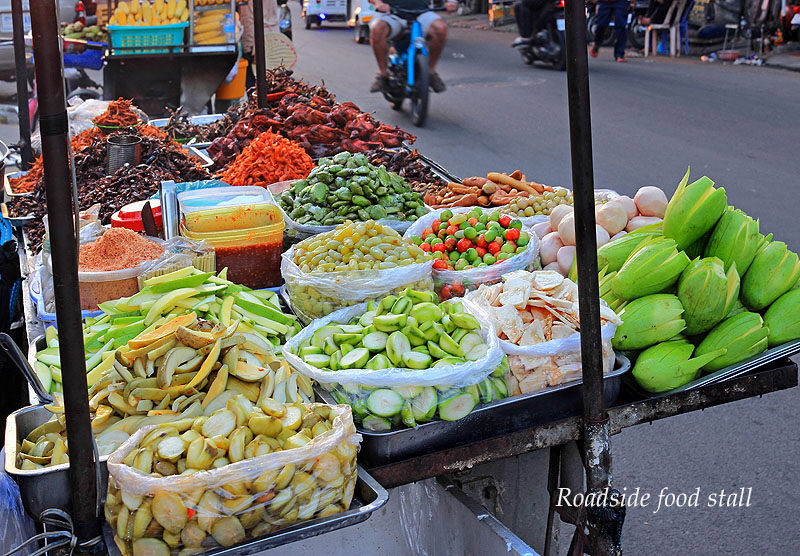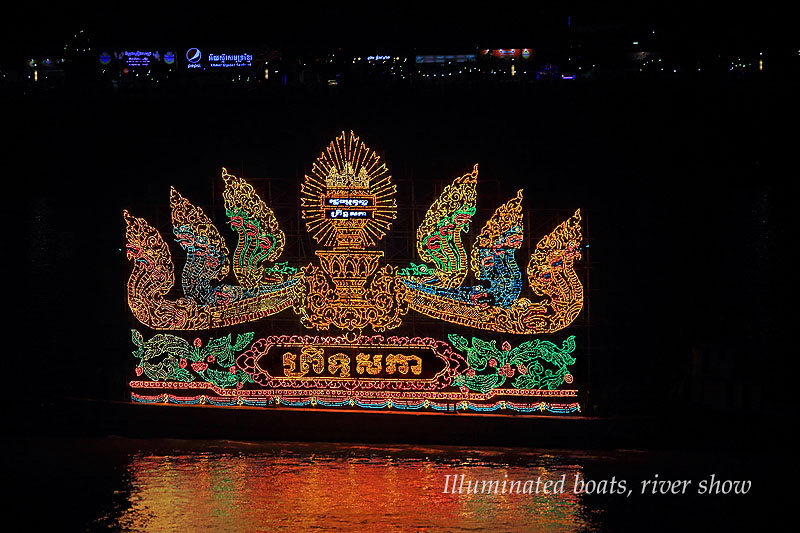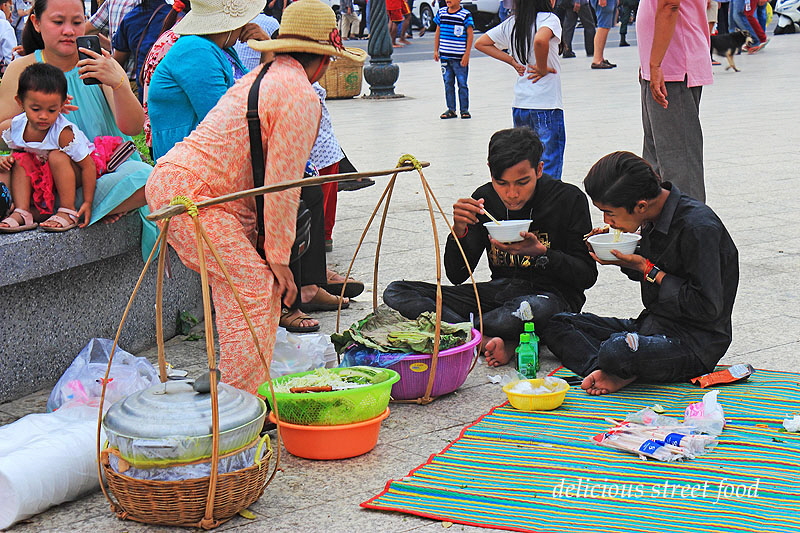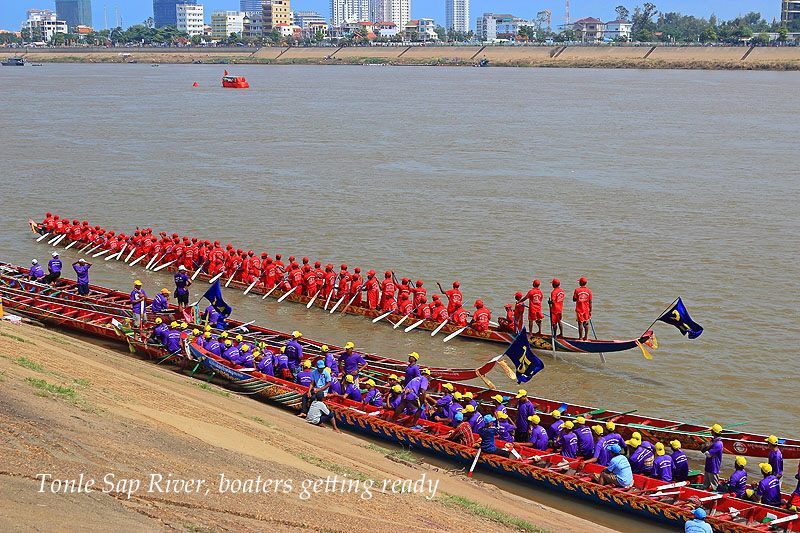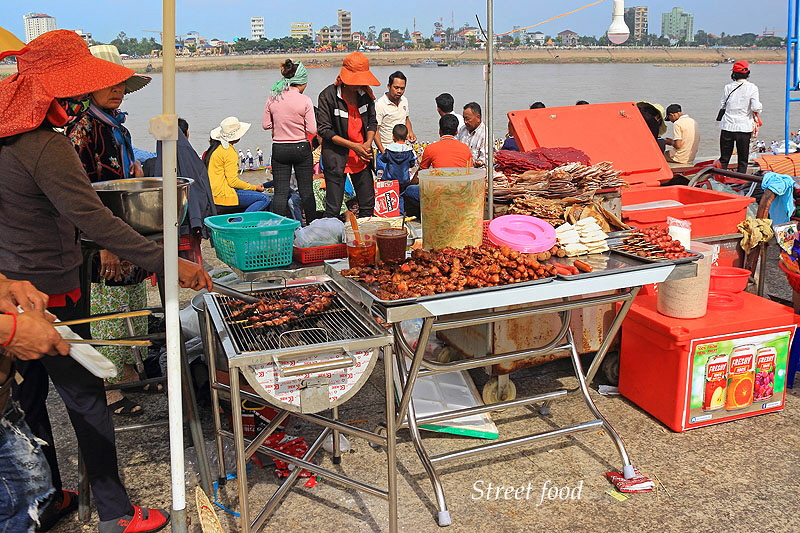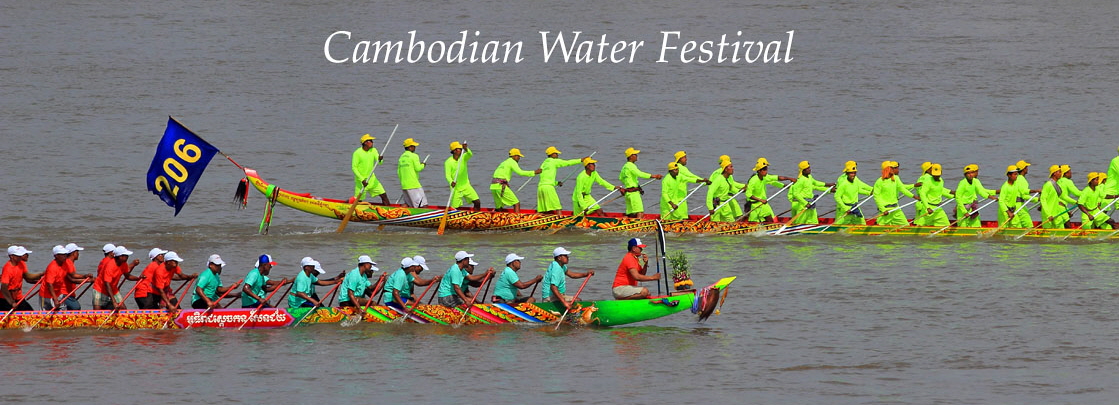
Happy days with happy people
My first full day in Phnom Penh was the second day of the country’s Water Festival - Bon Om Touk (means Boat Racing Festival). I had arrived the night before, and planned to start next day with a walk along the Sisowath Quay, the riverside promenade of the Tonle Sap River.
The water festival is an annual three day event held in early November, marking the end of the rainy season, and is celebrated throughout Cambodia. Although there are events and festivities in every province, the capital Phnom Penh puts on the biggest show. It draws a couple of million from all parts of the country who converge into the city, mingling with the city folk and thousands of tourists, all gathering to have a good time.
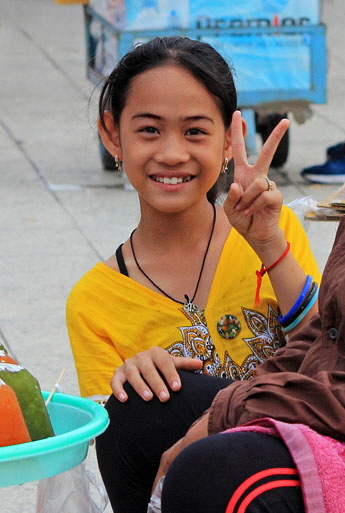
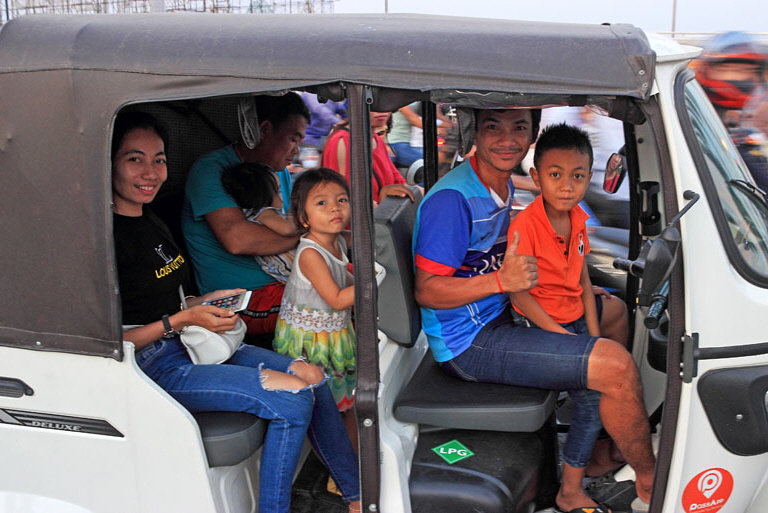
This non-religious festival began way back in the 12th century, around the time of King Jayavarman VII, who’s navy ushered in the Cambodian fishing season. The celebrations made the gods happy and secured good harvests the following year.
Another explanation is that during the Khmer-Cham conflicts, King Jayavarman VII’s navy reportedly defeated enemy warships attempting to sail up the Tonle Sap River. The festival was introduced to give thanks for this victory and thanks to the river gods. Whatever explanation, today the aim is still to enjoy and be happy.
Riverside promenade
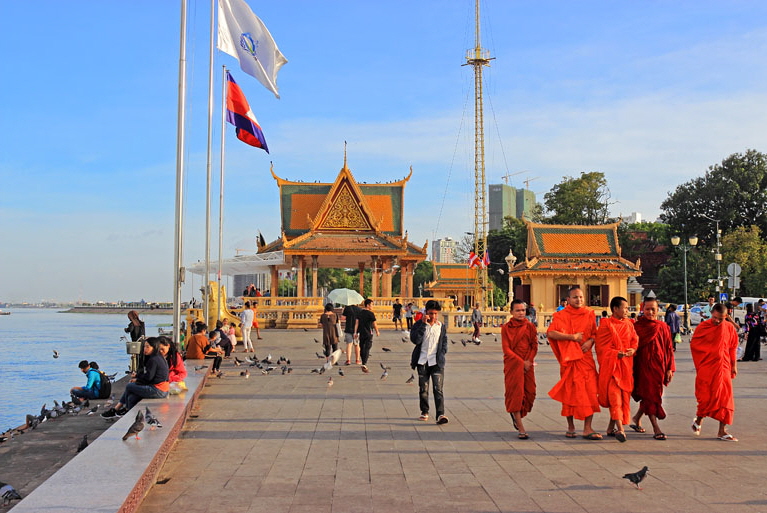
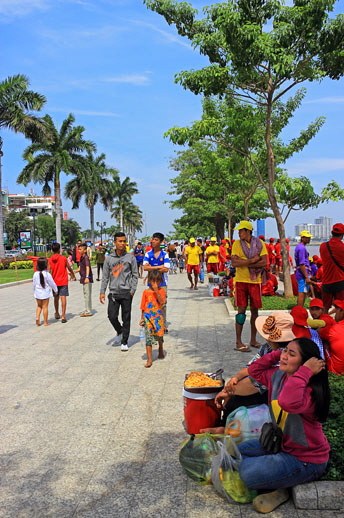
Up early morning, I was by the waterfront to see the activity begin with workers clearing the litter-strewn streets from previous day, and vendors setting up their stalls for the day ahead. Already the boat race competitors were gathered in groups in preparation for the regattas (similar to the Chinese Dragon Boats), with each boat able to carry around 100 people. The boats are usually sponsored by donors and government ministers. And the boaters arrive a day or two earlier to practice on the river.
As I walked along the still uncrowded promenade, many participating groups were singing, some dancing, and a couple even tried to persuade me to join in. There didn’t seem to be much of a competitive atmosphere, but more like a time of communal fun, as many different boating groups joined together in merriment and anticipation.
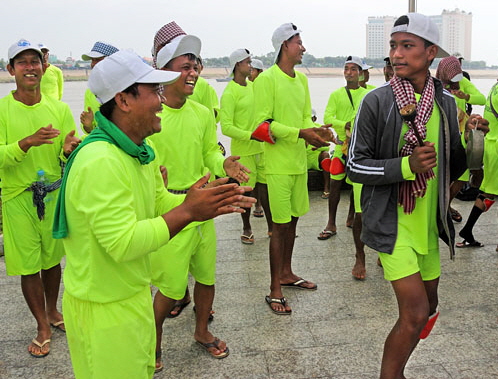
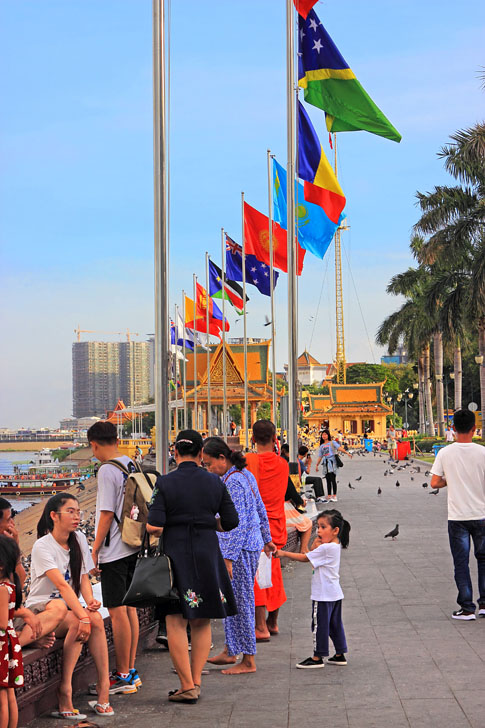
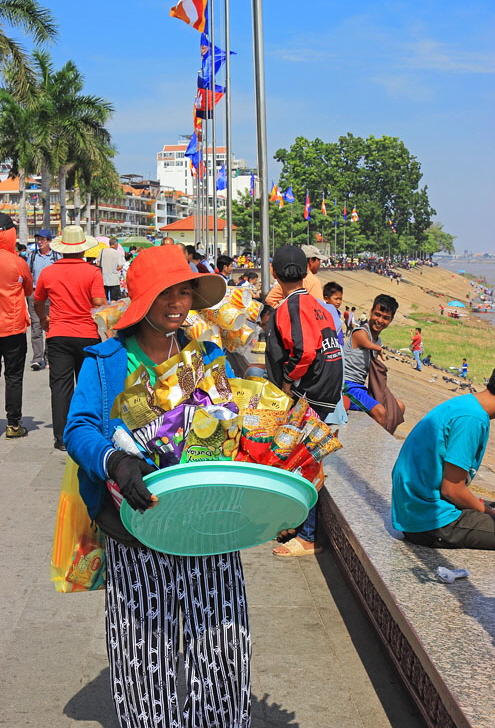
By 10 am the waterfront had got busy, with many spectators taking seating positions by the riverside to watch the action, and in-between the food vendors were set up and ready.
Soon the loudspeakers blared along the 3 kilometre long Sisowath Quay, announcing the beginning of the races. The competitors, each crew dressed in brightly coloured T-shirts were being given final briefs by their coach or presumably captains, as the they moved down to the river banks and onto their boats.
The signal was given and groups of 3 or 4 boats suddenly sped vigorously forward with crowds cheering them on. The man at the bow of each boat would keep frantically blowing his whistle and shouting words of encouragement at the rowers to go faster. Several races would take place with around 15 minute breaks in-between, until lunch time and resume again later. The winners were to be announced at the end of the last day.
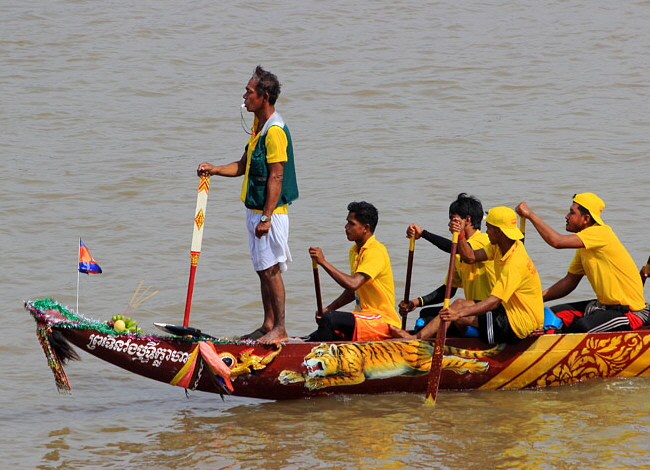

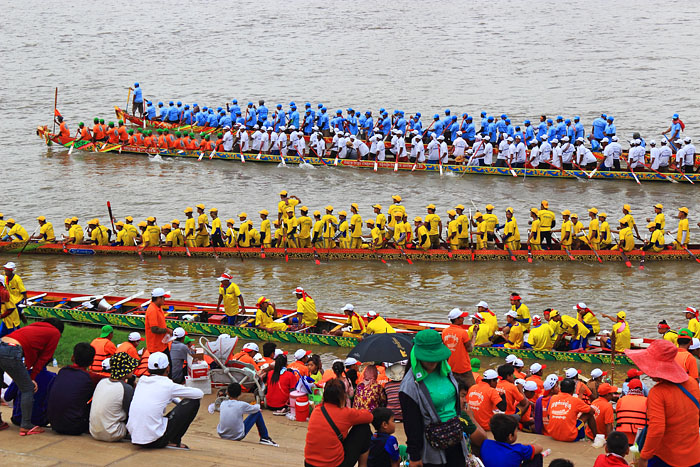
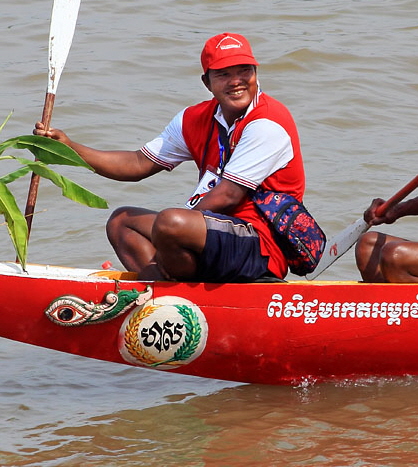
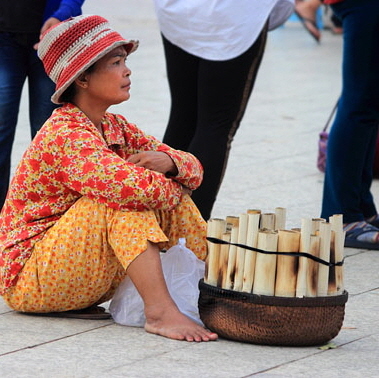
Bamboo Sticky Rice seller
The Water Festival is also very much a family event. Grand parents to grand children to babies in arms gathered in small groups, seated on the floor wherever they could find some space, and either shared their picnic food, or grabbed a bite from a nearby vendor.
While some of the street food snacks looked appetising, deep fried insects like crickets and grubs sold by the cup full, were an acquired taste. One unusual item a woman who was buying it explained to me, was Bamboo Sticky Rice - rice mixed with beans, coconut milk, stuffed and roasted in bamboo canes. She let me try a tiny bit which tasted slightly salty, but not much flavour. What I couldn’t resist was the spit-roasted chicken on skewers for just $1 and to go with it, cool coconut water, also $1.
The ice cream and iced water sellers were doing brisk business, in the tropical heat. There were also many non food stalls, selling anything from sun hats to souvenirs, toys and clothing. But vendors did not pressure you into buying anything. As most people have a basic understanding of English, it was also easy to make small talk and mix with the crowds. And it was particularly useful when buying from food stalls.
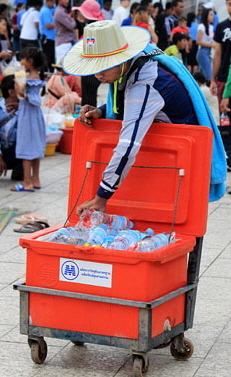
Water seller
Family picnic
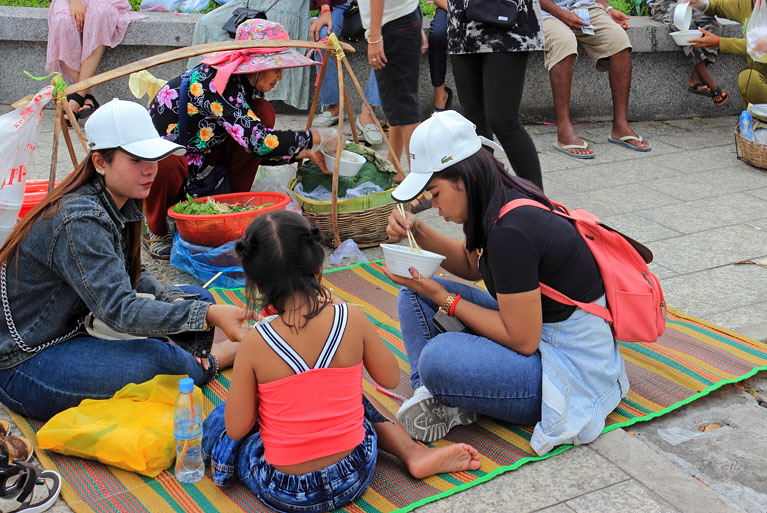
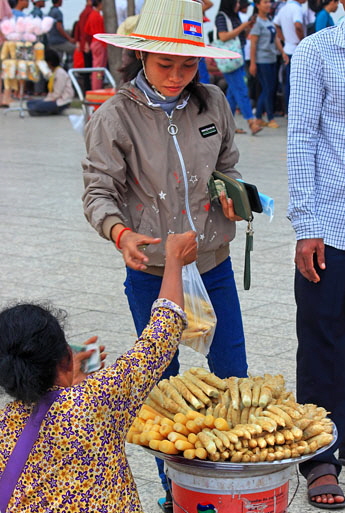
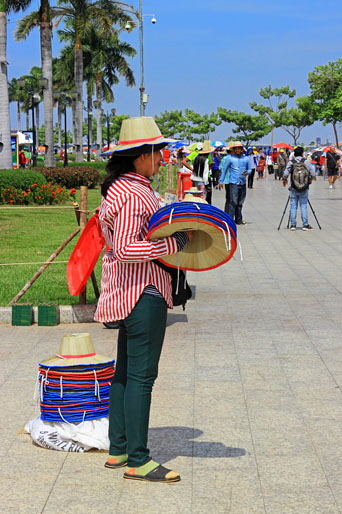
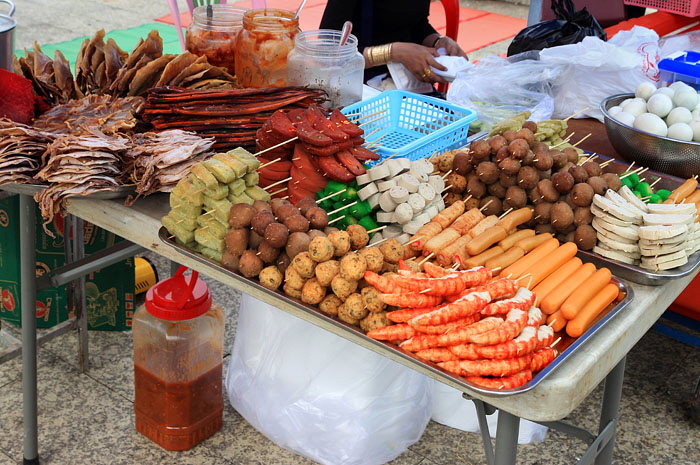
As the evening drew in, many grouped to play music or perform small dance routines. Some queued up by the waterfront Dorngkeu shrine to pray and light incense sticks. And those gathered around the square opposite the Royal Palace, seemed to be settling there for the rest of the night. Before dark, some also began to leave, and the main road became so busy it was choked with slow moving traffic. The only way to cross the road was to take a bold step forward and weave yourself between the bikes and Tuk Tuks. No road rage here.
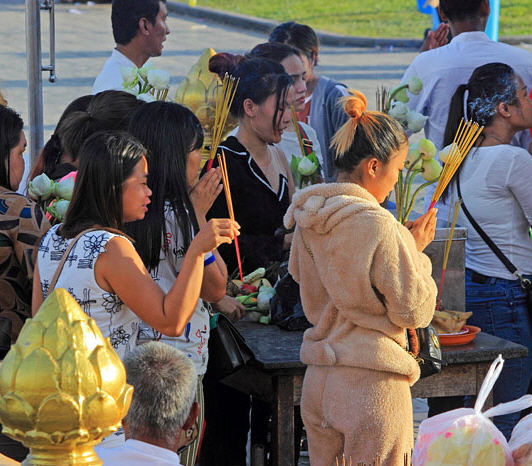
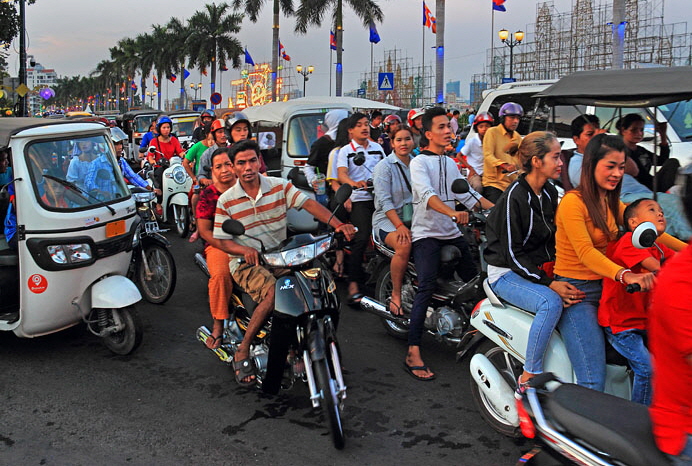
Worshippers at Dorngkeu Shrine
Traffic chaos, but no road rage
While the colourful regattas were the highlight of the day events, on the third and final day, on the night of the full moon, a spectacular show began on the Tonle Sap River. A flotilla of about twenty colourful illuminated boats began gently drifting along the river, giving the crowds a memorable extravaganza. The parade of boats went up and down the river several time for a couple of hours, until a 20 minute fireworks show brought an end to the festivities.
Colourful illuminated boat show
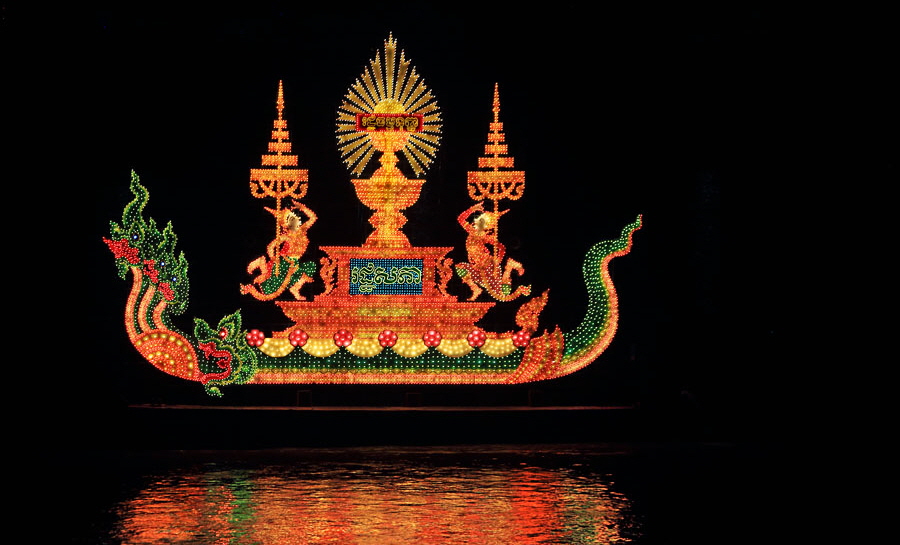
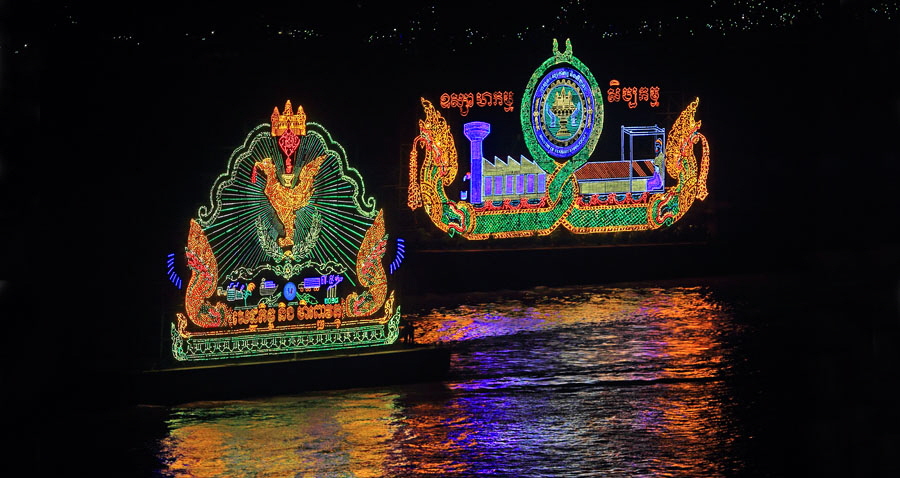
But the evening just didn’t end there, as the restaurants and street food stalls with delicious aromas wafting around kept busy way into the late night. It was difficult not to indulge, and I found trying one or two small items from different food stalls was the way to taste the local food while strolling along the promenade.
Without warning, a tropical shower came pelting down dispersing the crowds to find shelter. But it didn’t last long. And it did not mar the joyful event. Just as suddenly the rain came, it had gone, and everyone was back on the streets.
What was special about this festival was also, that despite the hive of activity, there was a laid-back and casual atmosphere to the whole event. Nothing was rushed, except the speeding boaters. People had come from faraway towns and remote villages to the big city to be part of a centuries old tradition. And I was lucky to be there too, to enjoy and be part of it.
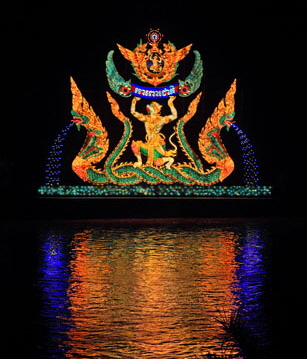
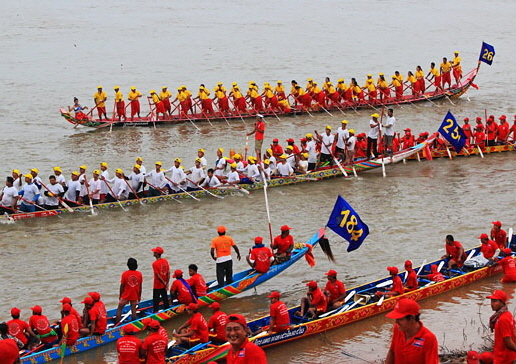
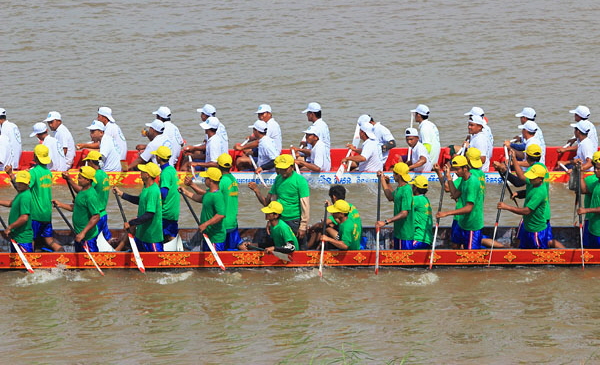
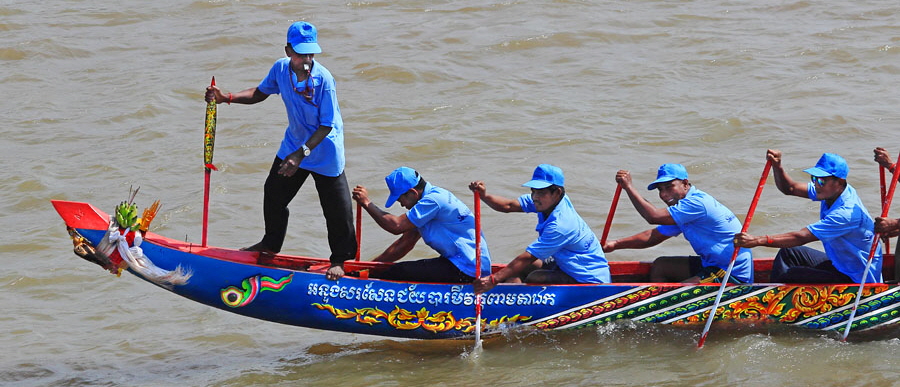
Note: I visited Phnom Penh in November 2019. Due to the pandemic the festival was cancelled in 2020. The 2021 festival is scheduled to take place in November 18-20.
Many of us are aware of the tragedy when on 22 November 2010, on the last day of the festival, 351 people lost their lives, and 755 were injured as they became trapped in a stampede on the bridge between Phnom Penh as Diamond Island. The festival was cancelled for the next three years and resumed in 2014. 22 November has been marked as Remembrance Day.
18 images here ©JAYTRAVELPHOTOS
© COPYRIGHT notice. The images on this site are for viewing only.
To purchase any, for personal or commercial use, please contact us at jaytravelphotos@aol.com
___________________________________________________________________________________________________________________________________________
